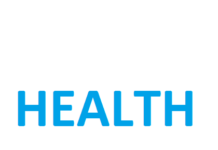HEALTH Canada is reminding Canadians that it is not safe to taste or eat raw dough, batter, or any other product containing uncooked flour, as raw flour can be contaminated with harmful bacteria such as E. coli.
Flour is derived from grain, which is grown in fields. In the fields, the grain may come into direct contact and become contaminated with bacteria from soil, water or animal waste.
Flour is a raw ingredient intended to be consumed cooked. Common “kill steps”, such as boiling, baking, roasting or frying, that are often used during food processing and preparation will kill bacteria that may be present in raw flour.
What you should do
- Do not taste raw dough or batter or any other product containing uncooked flour. Eating a small amount could make you sick.
- Bake or cook items made with raw dough or batter before eating them.
- Do not use raw flour in non-baked goods or a non-baked product, such as children’s play-dough.
- Always use hot water and soap to wash any bowls, utensils or surfaces that flour was used on.
- Wash your hands with soap and warm water immediately after touching flour, raw dough or batter.
Best practices for cooking with flour
- Keep raw foods, including flour products, separate from other foods while preparing them to prevent cross-contamination.
- Use separate bowls, measuring cups and utensils to keep flour, raw dough and raw batter separate from ready-to-eat food.
- Do not add flour to foods that will not be cooked, such as milkshakes and ice-cream mixes.
- Bake or cook items containing flour, including flour used for thickening.
- Follow package directions on products such as cake mixes for proper cooking temperatures and specified times.
Symptoms
Common symptoms of E. coli can appear within one to ten days after contact with the bacteria, and include:
- Severe stomach cramps
- Watery or bloody diarrhea
- Vomiting
- Nausea
- Headache
Most symptoms go away within five to ten days without needing to see a healthcare professional. While anyone can become infected with E. coli, young children aged 5 and under, older adults, and people with weakened immune systems are more likely to get sick and their symptoms may be more severe.
Parents of young children should be aware that many recipes for homemade play “clay” contain raw flour. Both parents and operators of childcare facilities should use recipes that do not call for raw flour or buy commercially available play dough products.
Contact your healthcare provider if you think you have become ill from eating raw dough or batter, or from handling or consuming a raw flour product.
Who is affected
People infected with E. coli can have a wide range of symptoms. Some people do not get sick at all, although they can still spread the infection to others. Others may get an upset stomach or become seriously ill requiring hospitalization.












